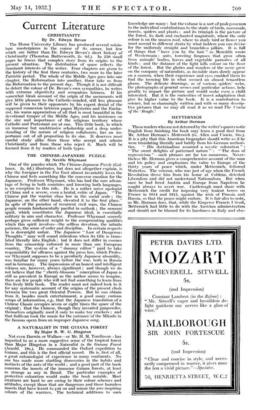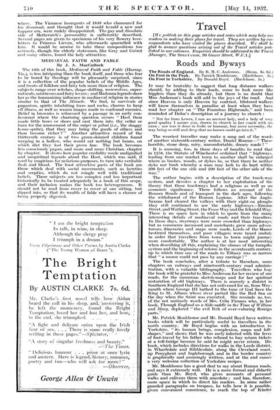Those readers who are not deterred by the writer's queer
exotic English from finishing the book may learn a good deal from Mr. Arthur Herman's Metternich (G. Allen and Unwin. 16s.). It is a pity that this American biographer should write as if he were translating literally and baldly from his German sottlmri-
ties. " His doctrinalism assumed a mystic coloration" : " The sweet delights of patterned nature " : The dam of regressivism "—such phrases are far too numerous. Never- theless Mr. Herman gives a comprehensive account of the man and his policy and emphasizes the value to Europe of the thirty years of peace which, under Metternich, followed Waterloo. The veteran, who was just of age when the French Revolution drove hint front his home at Coblenz, detested Liberalism and did not understand Nationalism. But when once he had freed Austria and Europe from Napoleon he sought always to avert war. Castlereagh must share with Metternich the credit for imposing very lenient terms on France in 1811 and 1815, against the wish of Prussia and Russia, so that the peace might endure. It is fair also to note, as Mr. Herman does, that, while the Emperor Francis I lived, Metternich had little to do with the Austrian administration and should not be blamed for its harshness in Italy and else.
where. The Viennese insurgents of 1848 who clatnoured for his dismissal, and thought that it would herald a new and happier era, were rudely disappointed. The gay and dissolute side of •Metternich's personality is sufficiently described. Several pages-are given to specimens of his very flowery love- letters to Princess Lieven, who afterwards quarrelled with hint. It would be unwise to take these compositions too seriously, though the elderly statesmen, like Grey and Guizot and many others, found the lady attractive.





































 Previous page
Previous page